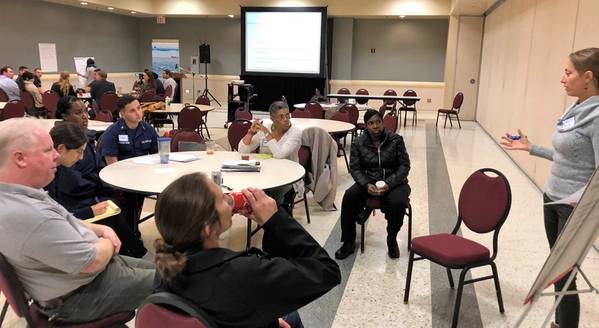
An oil spill response workshop in Houma, La., earlier this month was the first of five such information gathering sessions the Sea Grant Oil Spill Science Outreach Program has planned in coastal areas. The year-long project, which began in July, is part of a collaboration with the Gulf Research Program of the National Academies of Sciences, Engineering and Medicine, the Gulf of Mexico Research Initiative, and Sea Grant programs around the country.
Steve Sempier, oil spill science outreach manager for Mississippi-Alabama Sea Grant Consortium, said the workshops, which focus on human health, social science, and the economic impact of oil spills, are intended to help understand what research opportunities exist.
“We’re bringing groups together with disparate perspectives all focused on one issue,” he said. “Our purpose is to build bridges of trust with all groups working on this.”
To date, there has been tremendous research into the ecological side of oil spill response, he said.
“There’s not as much progress yet in looking at impacts on the human side,” Sempier said. “Now we’re increasing the interest on the human side.”
A key takeaway from the Houma event was that “there is a desire and interest between the response and research community to partner together, to identify and address some of these issues that are not as explicit in response and recovery,” he added.
A spill can economically impact community infrastructure, fisheries and aquaculture, transportation, subsistence economies, and recreation and tourism. Public health matters include communicating risks, risks to cleanup and response workers, risks to coastal community members, short- and long-term health monitoring, individual and community mental health, and food insecurity. In terms of social disruption, a spill can generate “boomtown” effects, decreased social capital, displace populations, interrupt life, and break trust.
The other four workshops will be in California, Alaska, Virginia, and Alabama, and they are set to occur through April.
The NAS will use information gleaned to release requests for proposals for research and fund pilot projects.
The oil spill outreach program is intended to take the latest oil spill science and translate it into accessible language for different audiences affected by oil spills, such as the oil spill response community, fishers, tourists, and the oil and gas community, tribal communities, and leadership in coastal regions.
“Our goal is to share unbiased peer-reviewed science with a wide range of audiences,” Sempier said.